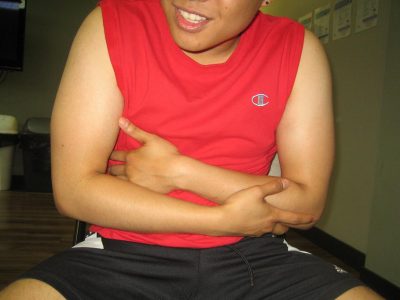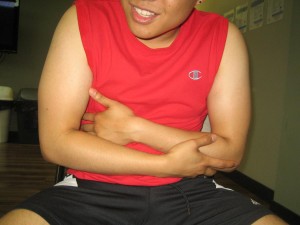Abdominal point tenderness is described as pressure on an area in the abdomen that triggers pain. It can also feel tender and sore. In case the removal of the pressure triggers pain, it is known as rebound tenderness. Take note that point tenderness is often an indication that there is something wrong with one or several organs in the area.
When to seek medical care
Conditions that cause abdominal point tenderness are considered as medical emergencies. It is vital to seek help if fever is also present. If left untreated, abdominal point tenderness can be dangerous.
Some conditions that can cause abdominal point tenderness include:
- Appendicitis
Sensation of fullness in the upper abdomen especially after eating. - Ectopic pregnancy
- Infections of the digestive tract
- Twisted fallopian tube or pelvic inflammatory disease
What are the associated symptoms?
The symptoms that might arise along with abdominal point tenderness include:
- Bloating
- Diminished appetite
- Vomiting
- Nausea
- Fever
- Abdominal pain
- Missed periods in women
- Constipation
- Pale stools
- Diarrhea
- Jaundice
- Distended abdomen
- Fainting
Management
The treatment for abdominal point tenderness is based on the underlying cause. It is not advisable to use aspirin, naproxen or ibuprofen for the abdominal pain since this increases the risk for stomach ulcers and GI bleeding.
If the cause is appendicitis, intravenous antibiotics are given and some cases require appendectomy where the appendix is removed. Hernias, ectopic pregnancies and a twisted fallopian tube might also require surgery to fix any structural irregularities.
For vomiting and diarrhea, fluids and electrolytes might be given intravenously. These fluids help maintain the blood pressure and acid-base balance.
Home remedies
Once the main causes of abdominal point tenderness have been dealt with, you can ease the other symptoms with the following measures:
- Apply a hot water bottle or heating pad to the sore area to relieve the soreness.
- Over-the-counter pain medications such as acetaminophen or ibuprofen
- Practice relaxation techniques such as yoga or meditation.


